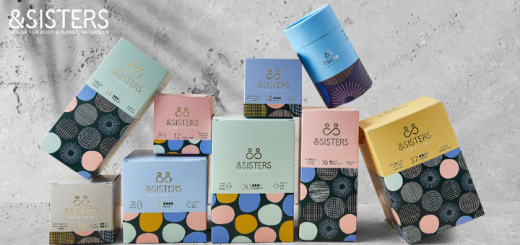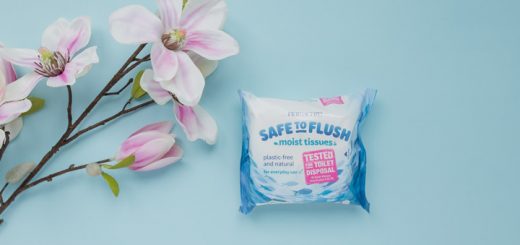I’m dreaming of an ethical Christmas
The festive season is now upon us, and as our thoughts turn to piles of gifts and food how do we make sure we can have an ethical Christmas? Is such a thing even possible?
Of course it depends on what your ethical views are – maybe you focus on the environment, seek out cruelty-free products, or make sure those who made your lovely gifts and food are paid fairly and don’t suffer in their working conditions. Many dedicated folks go the whole hog and try to adhere to all of these – so how hard is it?
The tree

The centrepiece of our festive home decor is no stranger to debate. Cut down a real tree every single year, or go faux and invest in an artificial tree? Many trees we assume to be grown in the UK are actually grown across Europe incurring an additional carbon footprint in its travel, although we get many local trees from Kielder and farms in the UK. Real trees require between 6-10 years of growth (many more for larger trees) and potentially pesticides and other chemicals along the way – but of course in that lifetime the tree provides a service to our atmosphere.
People point out that a fake tree is usually made from non-recycled plastic and ends up in landfill, whereas studies found that using an artificial tree for at least 10 years is better for the environment than using real trees – so if you do use one hang on to that plastic and make sure you get the absolute maximum out of it. My mother is going for that record with our family tree lasting 22 years!
There’s another alternative – get creative with your decorating and take a look at these brilliant examples of Christmas trees using other materials. If you have trees in your garden you could also decorate them, and make use of the view while allowing the tree to carry on its invaluable service to our atmosphere!
Don’t forget the decorations on your lovely tree – tinsel, beads and all the ornaments! Buying made to last, beautifully made ornaments that can be treasured for years (and even passed down to the next generation) helps reduce the waste. I have found some stunning handcrafted glass baubles over the years, along with lovely traditional wooden designs which are popular across northern Europe, which have lasted for years already and look way better than plastic.
The gifts, the cards, the wrap

Gifts bought for loved ones all come with a story – materials for them have to be sourced, the gifts need to be made by people somewhere along their manufacture plus transported to a shop, to you, and then on to your recipient if you’re posting the gifts on! You can avoid the horrors of sweatshop conditions by finding fair trade gifts that guarantees producers across the world were paid a fair price, in decent working conditions. For the inevitable toiletries and cosmetic gifts sets, cruelty free and no animal testing makes sure no creatures were harmed for your gift. Organic or paraben-free beauty products help avoid pesticides and harmful chemicals. Watch out for products presented in excess packaging, especially plastic that only ends up in landfill after its brief use and avoid re-wrapping gifts that come in packaging lovely enough to sit under the tree.
Another difficult issue can be avoiding products that cause a high environmental impact – there are many things to consider such as the product’s materials and where they come from, the material’s scarcity, the expected lifespan and whether it is even needed in the first place. While a plastic necklace can have a higher carbon footprint, it may possibly be treasured for years – but do you really need a pointless plastic ball of nothing?
Initiatives such as Small Business Saturday encourage consumers to buy from local and small businesses, highlighting such issues as large corporation tax avoidance. While this is no guarantee you can avoid products produced in unfair working conditions or without environmental damage, it’s a nice idea to support your local economy and potentially reduce product mileage.
Don’t forget the cards and wrap – in the UK we throw away a whopping 30% more rubbish over the festive period and over just the Christmas week will have binned 227,000 miles of Christmas paper — enough to go round the world nine times!
While councils give handy tips on recycling, you can reduce the waste in the first place with eco-friendly wrapping ideas and using already recycled paper.
Some of our favourite ethical gift ideas:
La Jewellery – recycled and gorgeous!
WeWOOD wooden watches
Plush fair trade chocolates
Wilby and Matt & Nat cruelty-free bags
Grow your own with Espresso Mushroom Company
FSC certified cards
Fair trade gift wrap
The food

We can all be guilty of a little excess in the food department over the holiday season (or a lot depending on how bad your mince pie addiction is). But how much of that food goes to waste? Making use of the leftovers is a great British tradition but we can all still make sure less goes in the bin.
There’s also a wide choice of fair trade, organic and vegetarian or vegan food out there meaning our ethical choices can be much easier these days – even for the hallowed mince pie. Buying local produce can also massively cut down on food miles and also help to support your local economy – organic veg box anyone?
Some of our favourite recipe ideas:
Divine Chocolate truffles and treats
Jamie Oliver’s Vegan Christmas
Celebratory Nut Roast recipe by Suma
Organic ginger Christmas Cake – (or cheat and buy the delicious Traidcraft cake!)
Giving a little back

There are no shortage of charities to donate time and money to, from Shelter to Oxfam. Ethical Superstore will be helping our local foodbank, sadly the most in-demand one in the UK, by increasing your donations by an extra 20%, and you can still donate to our other charities MSF, DEC, Amnesty International and RSPCA through the checkout. We appreciate everything you do to help.
Local initiatives such as Winter Coats NE are helping to give warm winter coats and clothing to the homeless, with similar ideas launched around the country. If you’re supporting one local to you, please let us know in the comments section!
Don’t forget the animals either – animal rescue charities such as the RSPCA and Farplace Rescue note that there are huge increases in abandoned animals over Christmas. Help them and others do great work by donating money, volunteering time or items in need such as pet food, blankets and toys.
Volunteering your time over Christmas can be a great way to give a little back if you don’t have money to spare, charities are always stretched for resources and your time is very much appreciated.
What will be your focus this Christmas? We’d love to hear your ethical tips and tricks for the season, and to see your creative efforts. Here’s to a wonderful ethical Christmas.



